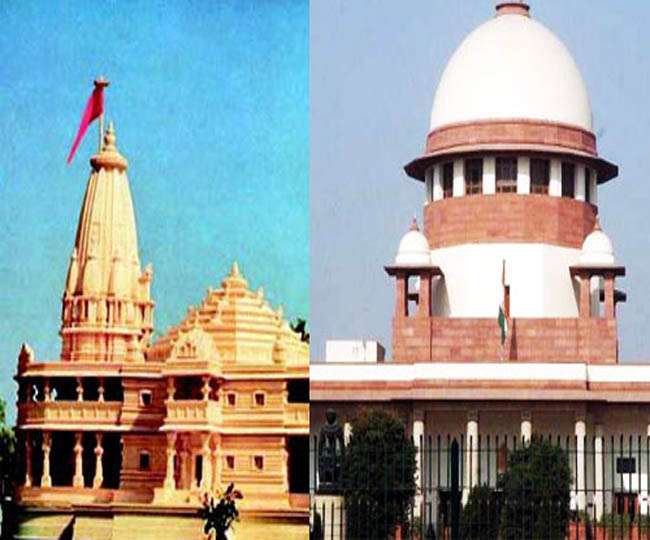On Monday, the Supreme Court refused an urgent hearing of the Ayodhya case pertaining to Ram Janmabhoomi-Babri Masjid land dispute. A three-judge SC bench reportedly said, “We have already passed an order and it is coming up in January.” The plea was filed after the Supreme Court had adjourned the hearing on Ayodhya case until January 2019.
Despite the Court’s earlier promise that the hearing would be fast-tracked, this baffling rejection for urgent hearing of a case that has stuck in a legal quagmire for so long despite a mass movement for quick resolution, raises a serious question mark on the priorities. In a major development, the Supreme Court, by 2:1 majority verdict, had refused to refer Ayodhya-Ram Janmabhoomi land dispute case to a larger bench, in September this year. The judgment categorically stated that Mosque is not essential to Islam. The verdict had cleared the way for speedy adjudication of the dispute. But now, the SC has deferred the verdict with respect to Ayodhya case. The deferring of verdict on the Ram Temple would in an election year lead to politics on the issue by various stakeholders.
The legal quagmire in the Ayodhya case begins way back in 1885. The first civil suit in the matter dates back to 1885. It was filed by Mahant Raghubir Das in January 1885 in the Court of the Sub-Judge, Faizabad. In his plea, Mahant Raghubir Das demanded permission to construct a temple on the chabutara outside the so-called Babri Masjid. His plea was rejected and later on the colonial British administration put a fence around the site.
Even after the long legal battle, the resolution seems nowhere and this is on judiciary which, after recent rejections to give urgent hearing to the matter, it seems does not consider it an important matter. The Ram temple issue is indeed an important matter as it pertains to the faith of millions of Hindus and this delay in resolution is tantamount to willfully hurting the sentiments of Hindus. The long legal delay seems unwarranted as there are multiple evidences for Ram Temple.
This confounding stance of Supreme Court on the issue is going to further complicate the matter of Ram Temple with the invariable political issues attached with it. In the wake of this legal stalemate, the government must exercise the executive privilege and brings an ordinance for the construction of the Ram temple. In order to initiate the construction of the Ram Mandir in Ayodhya, many BJP leaders have pitched the idea of taking ordinance route. Last month, UP CM Yogi also hinted about the possibility. The BJP leader Uma Bharti had also called for the amendment to the Constitution for the construction of a Ram Mandir. Some non-BJP members had also spoken about bringing an ordinance to build Ram Mandir.
For now, it seems ordinance is the only way towards Ram temple and the government must act before it gets too late. Now, it is up to the government to bring an ordinance and settle the issue for once and for all. It seems that the ordinance route is the only quick and expeditious option available as of now to fulfill the long standing demand of Ram temple in Ayodhya. Interestingly, even the Shia Waqf Board chairman, Waseem Rizwi has stated that he had sought an appointment with Prime Minister Narendra Modi to request him to take the ordinance route for the construction of Ram temple. This shows a growing clamour and demand for the construction of Ram Mandir through the ordinance route. It is now up to the Modi government to fulfill this demand.
